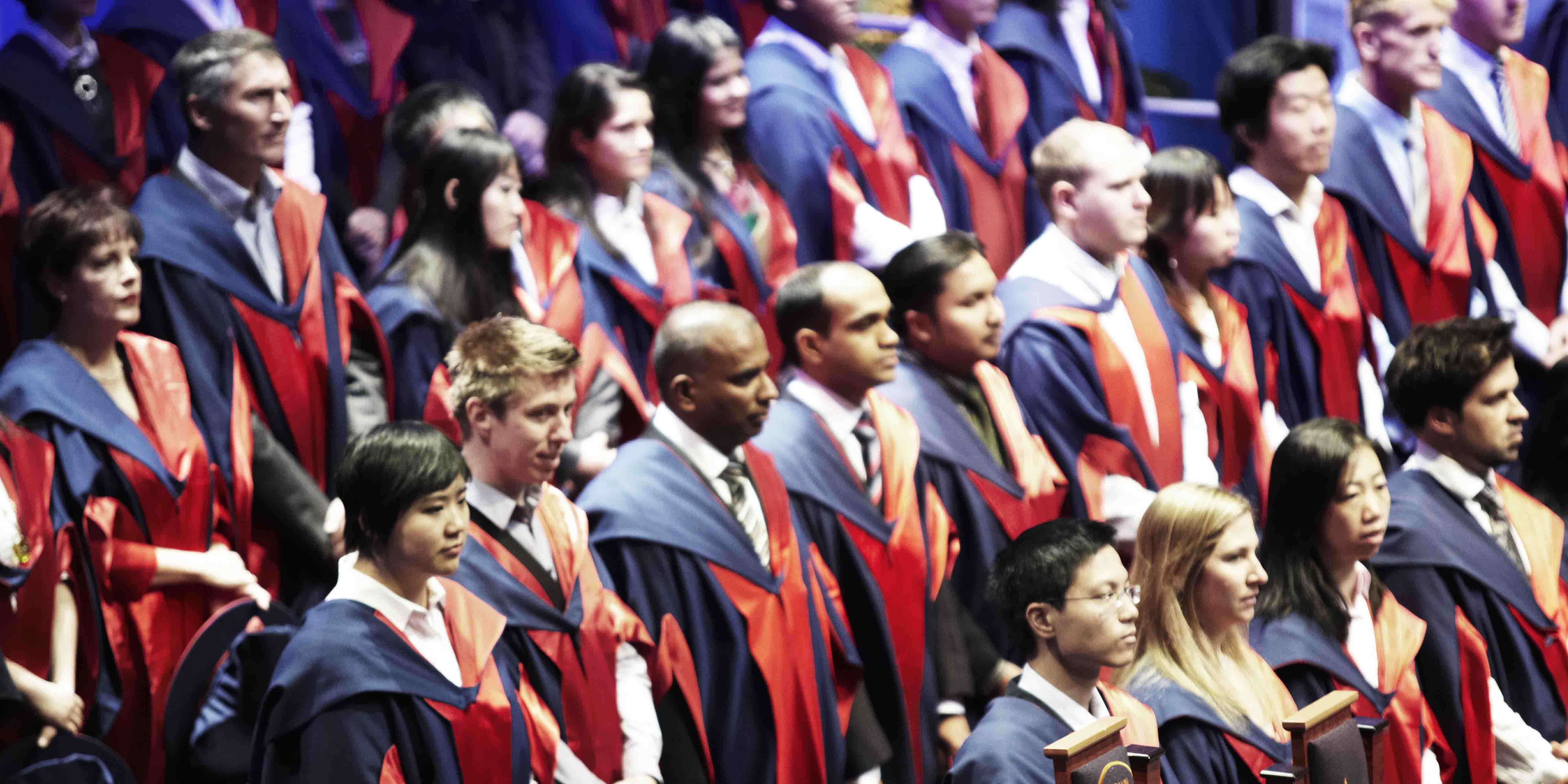Deakin graduates ready to take on climate change and driverless cars
Media release
Thousands of Deakin students will descend upon the University's Waterfront Campus in Geelong this week as Vice-Chancellor Professor Iain Martin presides over his first round of graduation ceremonies.
Professor Martin said the Deakin graduates are ready, not only to build their own careers but, to help solve some of the great challenges now facing local and global communities.
"While I formally commenced as Vice-Chancellor in July, these are my first graduation ceremonies, and I look forward to meeting each student as they cross the floor of our Costa Hall to receive their Testamur," Professor Martin said.
"I am thrilled to be part of this important milestone in our students' lives and excited to see what our graduates achieve, now they are equipped with a Deakin education.
"Deakin graduates possess many skills which give them an edge as they seek to serve our communities and participate in the modern workforce, one that is rapidly evolving and will require of them a mindset of lifelong learning and adaptability. Deakin ranked first in Victoria in the 2018 Graduate Outcomes Survey for the employment rate of our bachelor degree graduates, and second in the state for postgraduate employment outcomes. Our graduates will go on to do great things here at home and across the globe, and I’m sure many will tackle some of the biggest problems facing humanity."
One of those graduates is Geelong landscape architect and ethno-botanist, Dr Jennifer Dearnaley. Freshly minted Dr Dearnaley, from Deakin's School of Architecture and Built Environment, will receive her doctorate after examining the ways traditional land owners managed the environment of Wadawurrung country.
"My research thesis covers a large part of Wadawurrung country, from Geelong through to Ballarat, and investigates how the traditional custodians of that land were able to manage it so successfully for more than 65,000 years," Dr Dearnaley said.
"There's so much to learn from the Wadawurrung people who were living in a traditional way by incorporating and using plants in every aspect of their lives, right up until colonisation just over a couple of hundred years ago. Remarkably, the Wadawurrung people were able to do this with such sophistication and intelligence that they left almost no carbon footprint."
In her research, Dr Dearnaley identified 230 species of plants and a total of 872 uses that the Wadawurrung people had for these plants.
"Deakin sits on Wadawurrung country. The region is internationally recognised as a biodiverse hotspot and the traditional land owners understood their land's importance long before the scientific community realised this," Dr Dearnaley said.
"We have an obligation to preserve traditional ecological knowledge, it holds the key to so many of the issues facing us environmentally. I believe part of the solution to climate change is quite literally staring us in the face by way of this traditional knowledge."
Over three days of graduation ceremonies, 29 doctorates will be awarded. Among the other PhD graduates is Deakin's Institute for Intelligent Systems Research and Innovation's Dr Khaled Aboufarw, whose study examined how AI technology driving autonomous vehicles can better anticipate the behaviour of cyclists and pedestrians.
"I'm interested in the connection between autonomous vehicles and human behaviours. My research focuses on developing AI that can be used to help make autonomous vehicles socially aware entities that are capable of adapting and co-operating with other road-sharing users," he said.
"We know that in the not too distant future driverless vehicles will be the norm, but we must ensure that there's a confidence that AI can protect all road users, especially those that are most at risk of getting hurt when a computer has to decide what defensive manoeuvres to make in order to protect a car's passengers, for example."
Originally from Egypt, Dr Aboufarw moved to Geelong four years ago and is now based there.
"Given the world-class research institutes at Deakin and the impact they are doing in versatile real-life applications, it was a no brainer for me to accept an offer from Institute for Intelligent Systems Research and Innovation at Deakin University," Dr Aboufarw said.
Professor Martin said, "Dr Aboufarw and Dr Dearnaley's research highlights how Deakin graduates can apply their learnings to some of the critical challenges we're facing. Whether it's tackling climate change, the rise of AI, delivering sustainable health care, innovative new materials or many other areas and the issues that present, we have world-class researchers from Deakin who are well prepared to confront these challenges."

